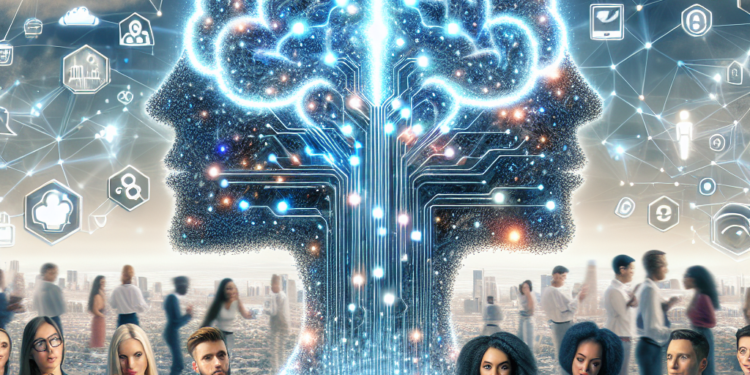In today’s digital age, influencer marketing has become one of the most powerful tools for brands to reach their target audience. With the rise of social media platforms like Instagram, YouTube, and TikTok, influencers have become key players in promoting products and services to their followers. And with the advancements in artificial intelligence (AI) technology, brands can now take their influencer marketing campaigns to the next level.
AI in influencer marketing is revolutionizing the way brands identify, engage, and collaborate with influencers. From finding the right influencers to analyzing campaign performance, AI can streamline the entire process and help brands achieve better results. In this article, we will discuss some of the best practices for using AI in influencer marketing and how brands can leverage this technology to maximize their ROI.
1. Influencer Discovery
One of the key benefits of using AI in influencer marketing is its ability to efficiently identify the right influencers for a brand. With millions of influencers on social media, finding the perfect match can be a daunting task. AI algorithms can analyze vast amounts of data, such as follower demographics, engagement rates, and content quality, to identify influencers who are most likely to resonate with a brand’s target audience.
AI tools like Influencer Discovery Platforms can help brands discover influencers based on specific criteria, such as location, niche, follower count, engagement rate, and more. These platforms leverage machine learning algorithms to sift through massive amounts of data and provide brands with a list of influencers that align with their goals. By using AI for influencer discovery, brands can save time and resources, and ensure that they are partnering with influencers who are a good fit for their brand.
2. Campaign Optimization
AI can also be used to optimize influencer marketing campaigns in real-time. By analyzing data such as engagement rates, click-through rates, and conversions, AI algorithms can provide insights into what is working and what is not. Brands can use this information to make adjustments to their campaigns on the fly, ensuring that they are getting the best possible results.
For example, AI can help brands identify which influencers are driving the most engagement and conversions, allowing them to allocate more resources to those influencers. AI can also analyze the performance of different types of content, such as videos, images, and stories, to determine which type of content is resonating most with their audience.
By leveraging AI for campaign optimization, brands can maximize their ROI and ensure that they are getting the most out of their influencer marketing efforts.
3. Fraud Detection
Another important use of AI in influencer marketing is fraud detection. With the rise of fake followers and engagement bots, brands need to be vigilant in ensuring that they are partnering with genuine influencers who have a real and engaged following. AI algorithms can analyze patterns in follower behavior and detect anomalies that may indicate fake activity.
AI tools can track metrics such as follower growth rate, engagement rate, and audience demographics to identify influencers who may be engaging in fraudulent practices. By using AI for fraud detection, brands can mitigate the risk of partnering with fake influencers and protect their reputation and investment.
4. Content Personalization
AI can also be used to personalize content for influencer marketing campaigns. By analyzing data such as user preferences, browsing history, and demographic information, AI algorithms can tailor content to each individual follower’s interests and preferences.
For example, AI can help brands create personalized messaging, product recommendations, and offers for different segments of their audience. By delivering content that is relevant and engaging to each follower, brands can increase engagement and conversion rates.
AI-powered tools can also help influencers create high-quality content by providing recommendations on topics, formats, and styles that will resonate with their audience. By leveraging AI for content personalization, brands can create more impactful influencer marketing campaigns that drive results.
5. Performance Analytics
Finally, AI can provide brands with valuable insights into the performance of their influencer marketing campaigns. By analyzing data such as engagement rates, click-through rates, and conversions, AI algorithms can provide brands with detailed metrics on campaign performance.
AI tools can track key performance indicators (KPIs) and provide brands with actionable insights on how to improve their campaigns. Brands can use this information to identify trends, optimize their strategies, and make data-driven decisions for future campaigns.
By leveraging AI for performance analytics, brands can measure the success of their influencer marketing efforts and make adjustments to ensure that they are achieving their goals.
In conclusion, AI is revolutionizing influencer marketing by providing brands with advanced tools and capabilities to optimize their campaigns and achieve better results. By leveraging AI for influencer discovery, campaign optimization, fraud detection, content personalization, and performance analytics, brands can maximize their ROI and drive successful influencer marketing campaigns.
As technology continues to evolve, AI will play an increasingly important role in influencer marketing. Brands that embrace AI and incorporate it into their influencer marketing strategies will have a competitive advantage and be better positioned to succeed in the ever-changing digital landscape. By leveraging AI best practices in influencer marketing, brands can stay ahead of the curve and continue to engage their target audience effectively.













